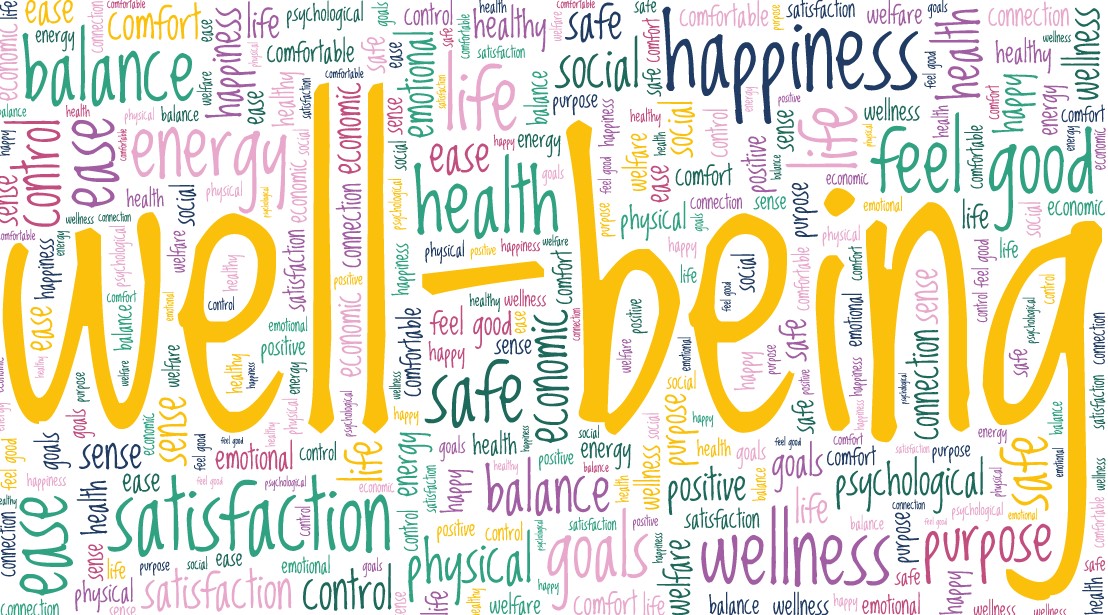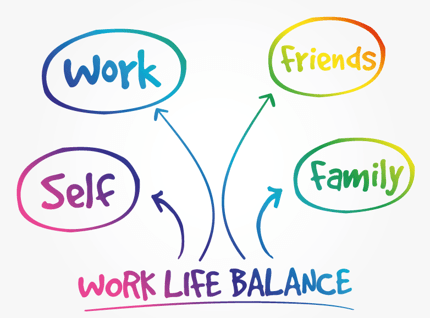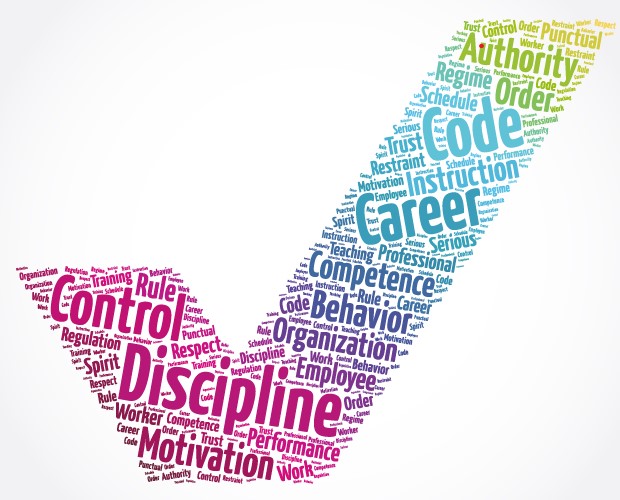Welcome to my new blog post series on Academics’ Well-Being Matters! In this blog post series, I initiate the discussion about the importance of academics’ well-being in increasingly platformised Higher Education Institutions. Carrigan and Jordan (2021, p.368) define platformisation as “the insert of platforms as intermediaries into a process” and as academics, we are expected to use digital technology (such as social media) in many aspects of our professional practices.

What really struck me during my PhD research is that our knowledge about academics’ well-being crises (such as mental and physical health issues and work overload) dates back nearly thirty years. Some studies (e.g., Blix et al., 1994; Kinman, 1998; Kinman and Jones, 2008; Torp, Lysfjord and Midje, 2018) reported data that derived from representative surveys; this clearly shows scholars have been concerned about this issue for many years. However, my PhD research over the past three years (2020-2023) shows that the landscape of academics’ well-being crisis has changed very little. Most importantly, it seems solutions still elude us and there is little motivation for change.
I gave some talks about academics’ well-being at different universities in 2022 based on my past and present research in which I identified the key challenges that academics face due to increasing platformisation as:
- Personal vs Professional Boundaries
- Increasing workloads
- Exposure to cybercrime
- Institutional expectations to use technology
- Emerging social media platforms

Along these lines, a publication by Fetherston et al. (2021) once again reflects that the digitisation of communication and the increasing integration of platforms and expectations for academics to communicate through multiple channels increase their workload. One reason for this is that platform affordances enable communication outside working hours and can reach students and colleagues across geographical borders at any time. Another potential reason is the fast speed of emerging social media platforms and the effort and time it takes academics to keep up with the latest developments and to learn how to integrate the new platforms into their professional practices. This results in blurring the boundaries between personal and professional lives and has impacted academics’ physical and mental well-being and job performance. Fetherston et al. (2021) show that over 50% of academics reported their mental well-being at risk.
Moreover, another study by Oksanen et al. (2021) conducted a survey study with 2,492 Finnish academics and reported increased hate and harassment on online platforms and other cybercrime, mostly from within academia, gravely impacting academics’ physical and mental well-being. Most recently, the well-being crisis is also confirmed by Hanitzsch’s (2022) preliminary findings presented at the European Communication Research and Education Association (ECREA). Jayman Glazzard and Rose (2022) claim that there appears to be a tendency of technological utopianism. This is a belief that technology is the solution to solve the well-being crisis and make academia perfect, and even aims to speed up platformisation further.
Who Is in Control of Our Well-Being?
One of the key issues that we need to address in academia is the potential loss of our autonomy from the fact that technology is the apparent default for everything (Kuntsman and Miyake, 2019). If we are expected to increase the integration of digital technology to contribute to HEIs aims and objectives and also to enhance our research impact, then who is in control of our well-being?
One may assume that the increasing pressure to follow HEIs expectations associated with platformisation constrains our autonomy (self-regulation/rule) to care for our well-being. Even though there are no strict rules that force academics to use social media professionally, one of my research participants explained that academics feel they may “miss the boat” if they are not keeping up with the speed of emerging digital technologies and the expectations of HEIs.

As academics, we have individual autonomy to make decisions about many aspects of our academic practices. This is important as job autonomy appears to be linked with employee well-being and low autonomy may have a negative consequence on employee well-being and may also negatively affect our job performance (Clausen et al., 2022; Ruggeri et al., 2020). Grouzet, Sokol and Müller (2013, p.1-16) argue that autonomy as self-rule requires that the agent actively assess these influences rather than simply react to them. External influences do not cause action, but rather provide information that the agent, as “helmsman,” then steers according to. Following this, if we can self-rule the integration of social media, we may bring balance to our basic needs to protect our well-being. This is crucial because negative consequences derived from platformisation on our well-being may also negatively affect our job performance.
Nevertheless, my research found that some academics felt socially pressured or even forced by their institutions to use platforms (social media) professionally, despite their experience of strong negative emotions and the potential consequences for their well-being. Of course, it is sometimes possible to endure negative emotions in order to reach a goal (e.g., eudaimonic; Steinert and Dennis, 2022), but it is questionable how far such an approach can be allowed to affect academics’ well-being. In a world where we are allowed to decisions about platform engagement without any institutional expectations and other socio-economic pressure, we may voluntarily choose to endure negative emotions holistically and self-rule our well-being sustainably.

This calls for a need for academics to increase their awareness of their digital well-being. In this context Vanden Abeele’s (2020, p.938) definition of digital well-being is crucial:
a subjective individual experience of optimal balance between the benefits and drawbacks obtained from mobile connectivity. This experiential state is comprised of affective and cognitive appraisals of the integration of digital connectivity into ordinary life. People achieve digital wellbeing when experiencing maximal controlled pleasure and functional support, together with minimal loss of control and functional impairment.
Following this definition, being able to balance the use of digital technology results in positive digital well-being. In this sense, academics may require developing an awareness of their rights to self-rule their use of social media. Indeed, prioritising their well-being may supersede striving to fulfil institutional goals and objectives through the integration of technology if this means losing control of their personal and professional lives, as well as physical and mental well-being, and may constrain their professional performance. Therefore, I leave readers with the following tips to support better management of using digital technology in professional practices:
- Acquire a functional understanding of platforms to set, for example, notification and privacy limits.
- Develop awareness of why and how a specific platform may be used for professional practices.
- Think about what the platforms afford and to what extent the use benefits the practices.
- Schedule a clear time frame for using platforms for professional purposes.
- Develop awareness of when your professional life overlaps with your personal.
- Develop conscious awareness of how using social media makes you feel.
- Start discussions about digital well-being in your department.
- Know your audiences and the risks associated with online engagement.
- Develop awareness of and prioritise your well-being.
- Develop awareness of potential online risks associated with using social media professionally.
Useful Links
- Social media to support your career: https://harzing.com/resources/working-in-academia/social-media
- Social media – caring in a shared world: https://christasathish.com/category/research-blog/harzing/
References
Blix, A. G. et al. (1994) ‘Occupational stress among university teachers’, Educational Research, 36(2), pp. 157-169, doi: https://doi.org/10.1080/0013188940360205.
Carrigan, M. and Jordan, K. (2021) ‘Platforms and Institutions in the Post-Pandemic University: a Case Study of Social Media and the Impact Agenda’, Postdigital Science and Education, 4(2), pp. 354–372. doi: https://doi.org/10.1007/s42438-021-00269-x.
Clausen, T. et al. (2022) ‘Job autonomy and psychological well-being: A linear or a non-linear association?’, European Journal of Work and Organizational Psychology, 31(3), pp. 395-405, doi: https://doi.org/10.1080/1359432X.2021.1972973.
Fetherston, C. et al. (2021) ‘Wellbeing and work-life merge in Australian and UK academics’, Studies in Higher Education, 46(12), pp. 2774–2788. doi: https://doi.org/10.1080/03075079.2020.1828326.
Hanitzsch, T. (2022) ECREA 2022: Findings: Work-Life Balance. Available at: https://twitter.com/THanitzsch/status/1583544293926789120 (Accessed: 27.12.2022)
Jayman, M., Glazzard, J. and Rose, A. (2022) ‘Tipping point: The staff wellbeing crisis in higher education’, Frontiers in Education, 7, p. ics to position themselves outside of the performa. https://doi.org/10.3389/feduc.2022.929335.
Kinman, G. and Jones F. (2008) ‘A Life Beyond Work? Job Demands, Work-Life Balance, and Wellbeing in UK Academics’, Journal of Human Behavior in the Social Environment, 17(1-2), pp. 41-60, doi: https://doi.org/10.1080/10911350802165478.
Kinman, G. (1998) ‘Pressure points: A survey into the causes and consequences of occupational stress in UK academic and related staff’ London: Association of University Teachers.
Kuntsman, A. and Miyake E. (2019) ‘The paradox and continuum of digital disengagement: denaturalising digital sociality and technological connectivity.’ Media, Culture and Society 41(6), pp. 901-913. doi: https://doi.org/10.1177/0163443719853732.
Oksanen, A. et al. (2021) ‘Hate and harassment in academia: the rising concern of the online environment’, Higher Education, (84), pp. 541–567. doi: https://doi.org/10.1007/s10734-021-00787-4.
Ruggeri, K. et al. (2020) ‘Well-being is more than happiness and life satisfaction: a multidimensional analysis of 21 countries’, Health Qual Life Outcomes, 18(192). doi: https://doi.org/10.1186/s12955-020-01423-y.
Steinert, S. and Dennis, M. J. (2022) ‘Emotions and Digital Well-Being: on Social Media’s Emotional Affordances.’, Philosophy & technology, 35(2), p. 36. doi: https://doi.org/10.1007/s13347-022-00530-6.
Sokol, B.W., Grouzet, F.M.E. and Müller, U. (2013) Self-Regulation and Autonomy: Social and Developmental Dimensions of Human Conduct. New York: Cambridge University Press
Torp, S., Lysfjord, L. and Midje, H. H. (2018) ‘Workaholism and work–family conflict among university academics’, Higher Education, 76(6), pp. 1071–1090. doi: https://doi.org/10.1007/s10734-018-0247-0.
Vandeen Abeele M. et al. (2022) ‘Digital well-being in an age of mobile connectivity: An introduction to the Special Issue’, Mobile Media and Communication, 10(2), pp. 174-189, doi: https://doi.org/10.1177/20501579221080.
